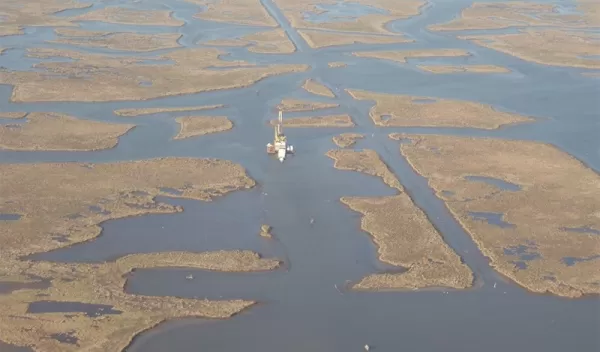
Mississippi Delta marshes in a state of irreversible collapse, study shows
Given the present-day rate of global sea level rise, remaining marshes in the Mississippi Delta are likely to drown, according to a new Tulane University study.
A key finding of the National Science Foundation-funded research, published in Science Advances, is that coastal marshes experience tipping points when a small increase in the rate of sea level rise leads to widespread submergence.
The loss of 2,000 square miles of wetlands in coastal Louisiana over the past century is well-documented, but it has been more challenging to predict the fate of the remaining 6,000 square miles of marshland. The study used hundreds of sediment cores collected since the early 1990s to examine how marshes responded to a range of rates of sea level rise during the past 8,500 years.
"Previous investigations have suggested that marshes can keep up with rates of sea level rise as high as half an inch per year, but those studies were based on observations over very short time windows, typically a few decades or less," said Torbjörn Törnqvist, lead author of the paper.
"We have taken a much longer view by examining marsh response more than 7,000 years ago, when global rates of sea level rise were very rapid but within the range of what is expected later this century."
The researchers found that in the Mississippi Delta most marshes drown in a few centuries once the rate of sea level rise exceeds about one-tenth of an inch per year. When the rate exceeds a quarter inch per year, drowning occurs in about half a century.
"The scary thing is that the present-day rate of global sea level rise, due to climate change, has already exceeded the initial tipping point for marsh drowning," Törnqvist said. "As things stand right now, the rate of sea level rise will continue to accelerate and put us on track for marshes to disappear even faster in the future."
Added Justin Lawrence, a program director in NSF's Division of Earth Sciences, "The effects of marsh loss are a serious public concern in coastal regions of the United States and elsewhere. This study could lead to management decisions that curtail those effects."


